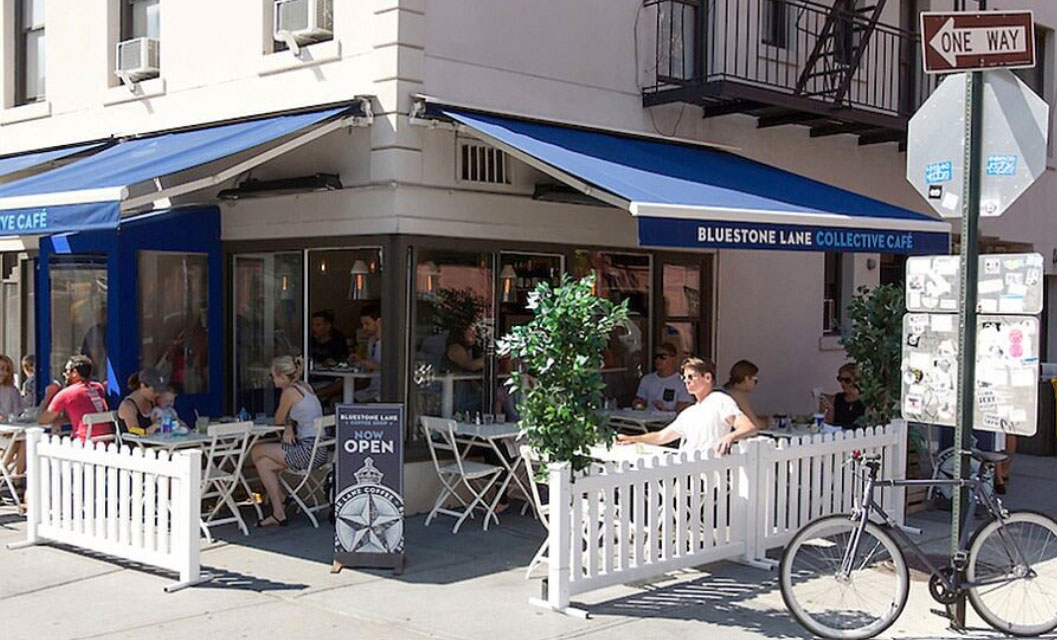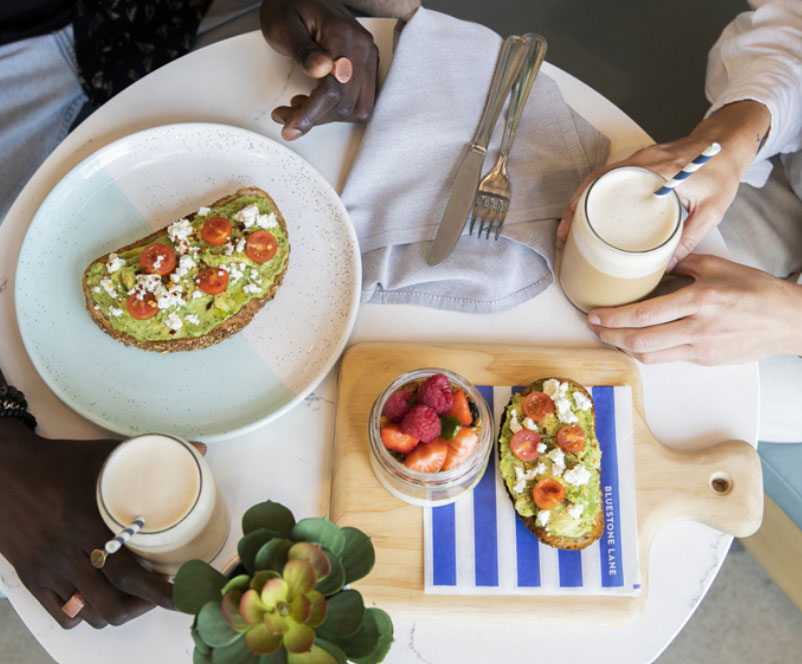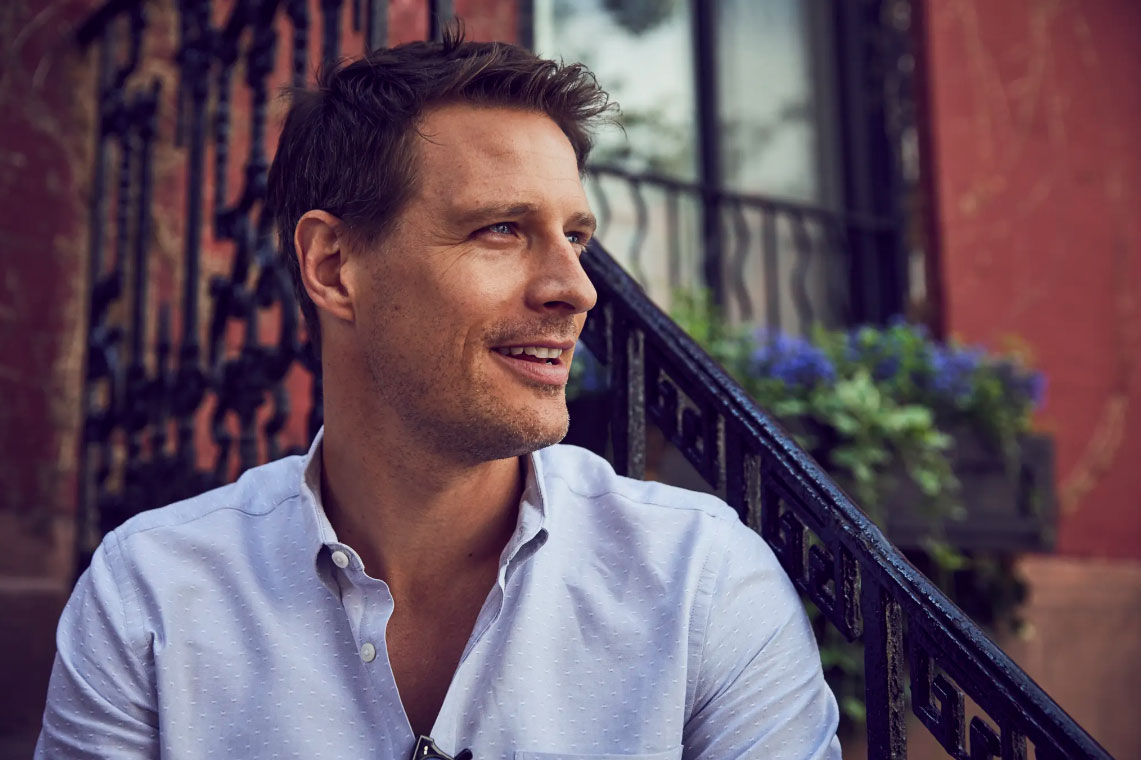Bluestone Lane celebrates 10 years of success in NYC
Nick Stone’s (OW1999) vision to elevate Australian coffee culture in the USA began in a subterranean basement in midtown Manhattan exactly 10 years ago. After school, ‘Stoney’ spent several years in the AFL, playing for Collingwood before being drafted to Hawthorn and St Kilda, after which he pulled on the boots for Collegians in 93 games from 2006 – 2010, and was part of the B Section Premiership team in 2006.
He completed a Bachelor of Business (Banking and Finance) at Monash University, a Master’s in Finance at FINSIA, followed by an MBA at Melbourne Business School before transferring to Fordham Graduate School of Business and completing an Executive Management program. Stoney worked in corporate finance and banking for 11 years in Melbourne and New York before leaving to focus on coffee.
It was at Fordham Business School in New York where, as part of an entrepreneurship class, he was asked to come up with an idea for a business. He was originally going to pitch a technology venture based on flash sale sites that were ‘all the rage’ at the time. Fortunately, he opted for a cafe, drawing on the kind of customer experience you’d get in the bluestone-paved laneways of his hometown, Melbourne – hence the name of the business – Bluestone Lane.

There was no signage marking the presence of his new cafe. There was no street visibility or even a sandwich board propped up on the footpath of Third Avenue, directing passers-by to come inside. ‘In fact, the only way you could find the place was if someone took you there or if you’d heard about it,’ he said. ‘It was this little hidden oasis – the quintessential hole-in-the-wall, elusive coffee shop that you’d find in the CBD in Melbourne or Sydney, and it was just around the corner from where I was working on Park Avenue. It was just a word-of-mouth venue, and it was successful straight out of the gate.’
Despite almost being ‘obliterated’ in the global pandemic, it now employs about 800 staff and has an annual revenue of more than $100 million. ‘When we first opened, there was a demand for better quality coffee and better-quality food, but most importantly, a place where you walk in and feel like a local – not a customer,’ he said. ‘That is what they call “Australian coffee culture”. Yes, coffee is a product, with an independent, artisanal commitment, but the most critical thing about our coffee culture is the element of community. You’re not just an intangible, transactional customer, its relationship orientated.’
 While American breakfasts tend to be dominated by the usual staples: scrambled eggs; crispy bacon or sausage; waffles, hash browns and toast, a good Australian cafe breakfast will focus on high-quality seasonal ingredients, often with smaller but tastier portions: smashed avo with a sprinkle of feta here; a soft chilli scramble garnished with micro herbs there.
While American breakfasts tend to be dominated by the usual staples: scrambled eggs; crispy bacon or sausage; waffles, hash browns and toast, a good Australian cafe breakfast will focus on high-quality seasonal ingredients, often with smaller but tastier portions: smashed avo with a sprinkle of feta here; a soft chilli scramble garnished with micro herbs there.
Asked how he reckons the US coffee landscape has changed over the years, Stoney replies, ‘We’re still in an early education phase, but it has improved. In the major metropolitan markets, there has definitely been a significant increase in the amount of what they call “third or fourth wave” coffee shops and cafes (which focus less on convenience and more on quality), while in New York, where our headquarters are, the landscape has dramatically changed.’

Stoney also achieved his own milestone a few years ago during the global pandemic: finally learning how to make coffee. ‘COVID had some silver linings, even though I didn’t think so at the time, because we went from 51 stores down to effectively 13,’ he says. ‘But with so many stores closed and the restricted ability to go to cafes and coffee shops, I ended up getting one of our spare machines that our events team use … and even worked some shifts as I was so desperate not to close stores. I should have probably done it earlier, but sometimes it takes an existential crisis to reskill and get on the tools.'
